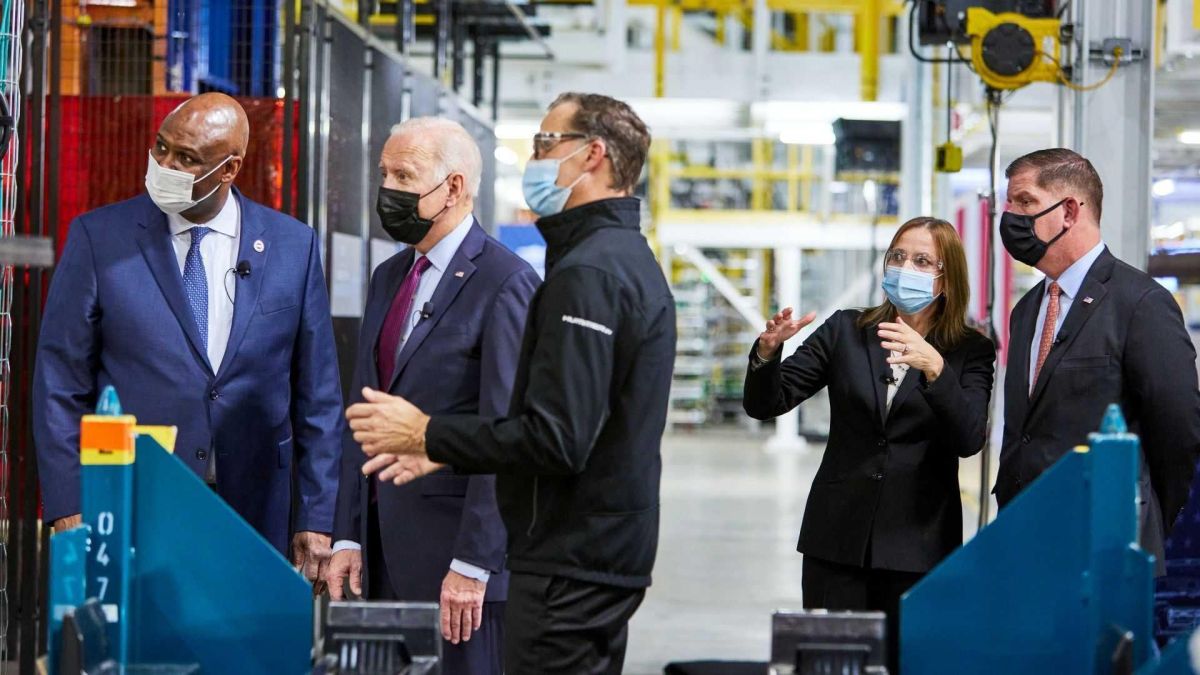What does your car know about you? We've all seen those little dongles offered by insurance companies that can be plugged into your car's OBD2 port to collect data, which is used to fine-tune your insurance rate. But what other information does your car know? How about where you like to eat, or go to the gym, or perhaps even that scenic route you like to take home after long days at work? As Mark Twain might say: "There's gold in them thar cars." And that's one reason America is increasingly concerned about cars from China.
The Biden administration confirmed Feb. 29 it will launch an investigation into connected vehicles using Chinese technology. The administration cites national security as the reason behind the probe, noting the risk associated with the potential exploitation of vehicles' systems, or the collection of troves of valuable data related to the U.S. infrastructure.
President Joe Biden issued the following statement: "These cars are connected to our phones, to navigation systems, to critical infrastructure, and to the companies that made them. Connected vehicles from China could collect sensitive data about our citizens and our infrastructure and send this data back to the People's Republic of China."
The investigation will be spearheaded by the U.S. Commerce Department. The path forward is certainly an arduous one. The department will kick off the effort by gathering feedback from industry stakeholders and seeking comments on what actions it should ultimately take.
More specifically, the administration has concerns that systems present in connected cars -- like the ones used to transmit telematics data, driver assistance features that can control acceleration and steering, as well as EV powertrain and battery systems -- could be vulnerable to exploits from independent or nation-state cyber threat actors.
"Many of these vehicles can be enabled and disabled remotely. Connected vehicles that have technologies sourced from China could be exploited in ways that threaten U.S. national security," said White House economic advisor Lael Brainard. "China already has restrictions that do not allow connected vehicles to operate in China unless those vehicles only provide data to Chinese entities and use only Chinese software."
The worry comes amid the concern of Chinese-built cars finding their place in the U.S. market. Lawmakers, auto manufacturers and industry trade groups have recently expressed concerns of "an extinction-level event for America's auto industry" caused by the potential of tarriff-dodging automakers. And, as a result, could mean an influx of foreign, exploitable tech on U.S. soil. This could be one tool in America's arsenal to head that off.
To be clear, the U.S. says it has no plans to outright ban Chinese EVs. But this probe will better help it to understand the impact of potential data collection -- something China already does for its own domestic connected cars -- and exploitation.
"It doesn't take a lot of imagination to figure out how a foreign adversary like China -- with access to this sort of information at scale -- could pose a serious risk to our national security and the privacy of U.S. citizens," said U.S. Commerce Secretary Gina Raimondo.

















